“It’s cold today, but in a spring way, and I love you.”
Vladimir Nabokov, Letters to Vera
For the next two weeks I’m removed, relatively speaking, from most of life, in order to work in an acute, gargoyle-like manner on a new project with an end-of-year deadline. This need for removal found me driving over 450 miles south and then east, to the coastline of flint perched on which sits a house that used to contain grandparents, which will at some point be sold—becoming part of other people’s stories after over thirty years within my own.
The house is perhaps three hundred meters from the shrinking edge, and if you walk towards the North Sea things will quickly transform from hazy memory of barefoot and sand to an aggresive erosion of physical land. The place where one used to descend to the sea no longer exists, the yellow-edged road and its boat-access ramp long wrecked and disintegrated into saltwater. Trees and field, too, disintegrated, along with millions of years of the Earth’s geological efforts and the possiblity of safely accessing the stretch of sea we used to swim in. Pieces of old wooden breakwaters are barely visible now, lost under the encroaching water, but a few decades ago they could be walked along, delightfully dangerously, covered in slick seaweed and encrusted things which all breathed whenever the tide came back in.
Alone in the house I notice certain objects I’d never focussed eyes on as a child, a sure way to feeling disconcerted, though a confirmation too of being altered by adulthood, in the right ways. I hoover up and release marble-bodied an unnerving quantity of spiders that thought they were safe from me behind a sofa in a long-unused garden room. I remove from paving stones in the garden the remains of a bird carcass in an horrifying state of decomposition. I hang out laundry with rusted pegs, and find a shed beyond the greenhouse being slowly consumed by a bright green ivy—I don’t remember it being there. The door still opened easily enough, inside various wooden tools and the smell of time.
Returning to a place so etched in a visceral memory, whilst knowing that it will not always be somewhere that can be returned to, something I don’t have a word for—perhaps grief, perhaps growth, perhaps melancholia, perhaps a freeing up of space for more and better love of other things yet to come.

WORK FEATURE:
An interview with Maahi Shah in the new April-May issue of Harper’s Bazaar India, about my latest book Everything, Beautiful, and some of my views on beauty as we know it and beauty as we don’t. You can read in full below:
SIGNED BOOKS & ORIGINAL ARTWORKS:
The currently available collection of original drawings and paintings, including a painting of the Palestine sunbird the proceeds of which will be donated to Medical Aid for Palestinians.
If you would be interested in a larger-sized print of the Palestine sunbird—the national bird and very much representing defiance against ongoing and long-standing occupation of an Indigenous land—please drop a small comment at the end of this newsletter, and if there is enough interest I will organise as a pre-order of one or two print sizes, with the majority of proceeds also to be donated to MAP.
Also now up on the website are the various foreign language editions of my books, available as signed or unsigned copies, with varying stock levels of French, Korean, Vietnamese, Italian, Russian, German, Spanish, Japanese, Chinese, and Brazilian Portuguese language copies, along with the UK and US versions too.
THIS WEEK I FELL IN LOVE WITH:
The work of Taysir Batniji (b. Gaza, 1996), in the form of photographs, from a few points in time, and from a few different series, of Palestine. To look through the collections featuring the below photographs more completely, please see Gaza Diary #3, 1999-2006 / The Sea, Gaza Diary #3, 1999-2006 / The City, Gaza Diary #3, 1999-2006 / My Place, and Home Away from Home / Uncle Seleem’s House, 2017.
I would also highly encourage you to take the time to read Taysir’s accompanying introductions and background to each of these series.
— Mahmoud Darwish, Memory for Forgetfulness: August, Beirut, 1982 (translation Ibrahim Muhawi)
Related:
Paid supporters of The Sometimes Newsletter receive several additional posts each month, including things like short stories, illustrated essays, and more detailed looks into creative processes. The most recent of these is an essay-list of sorts, Nine Songs from Home, and the next will be an freshly-illustrated, previously archived essay Flying Closer to The Sun.
Nine Songs from Home
The first song, an inability to sleep peacefully. Where, normally and for the most part, a person might expect to fall asleep swiftly, calmly, with some satisfaction for the day which has come before, we find none of the above.







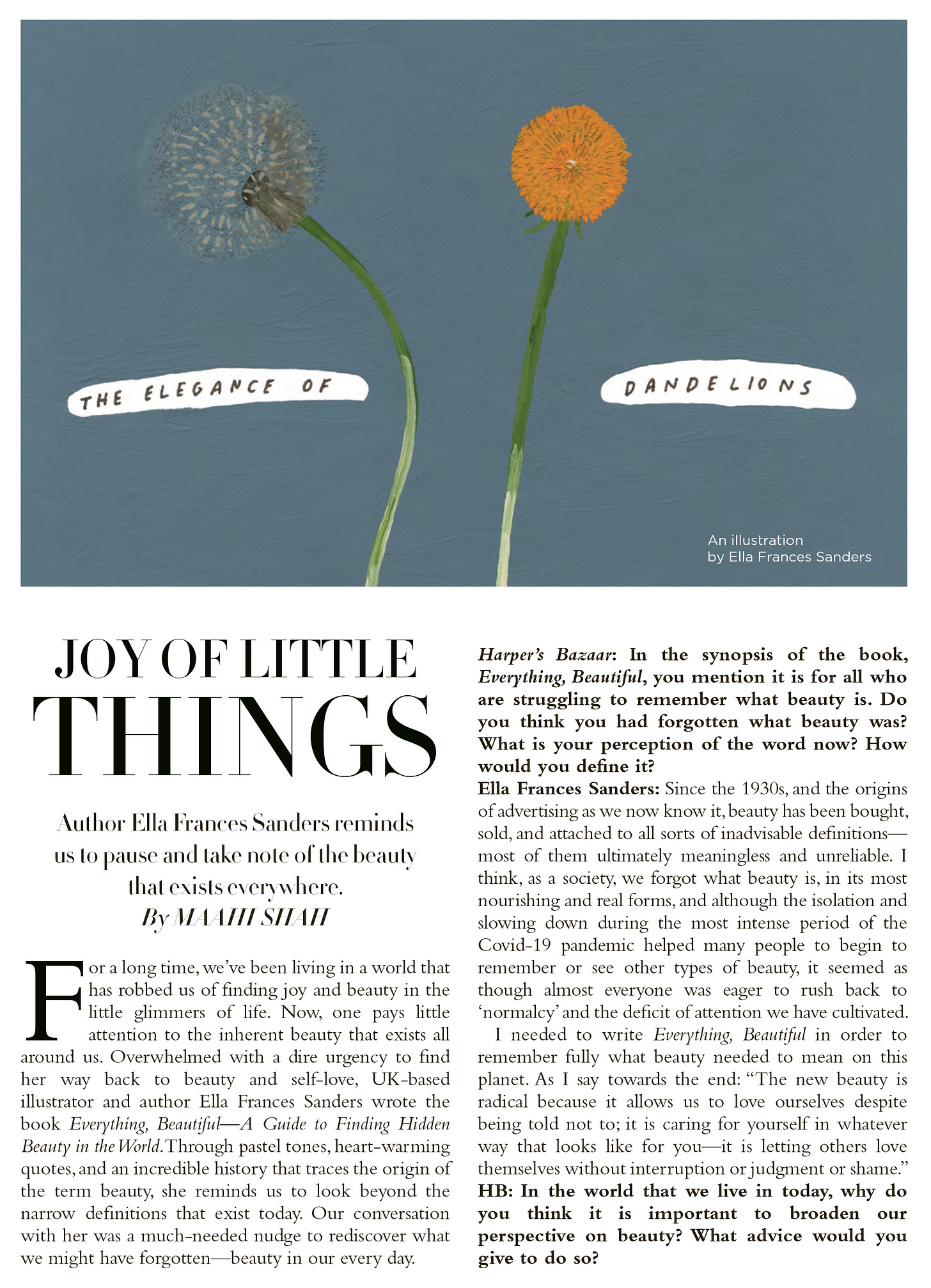
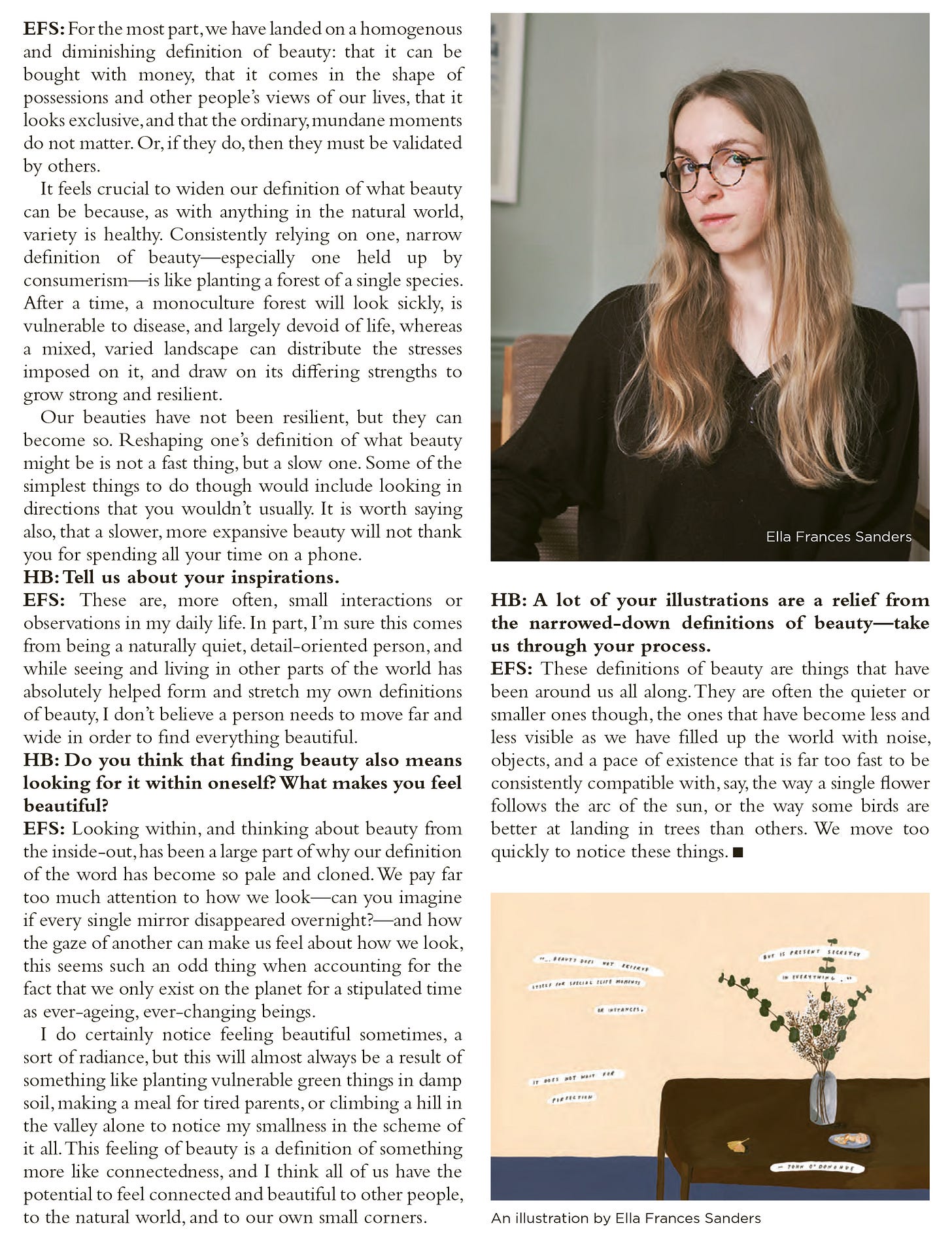

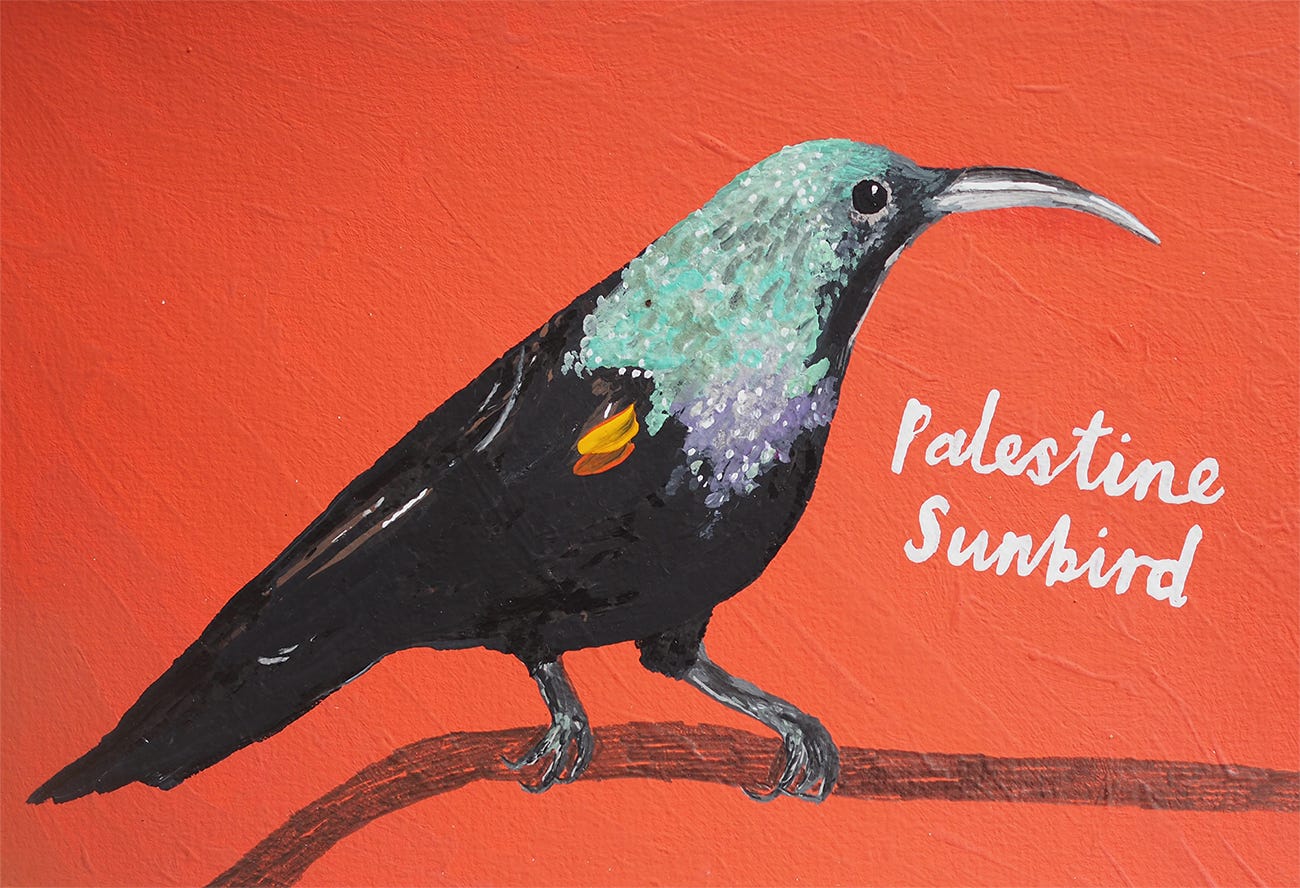

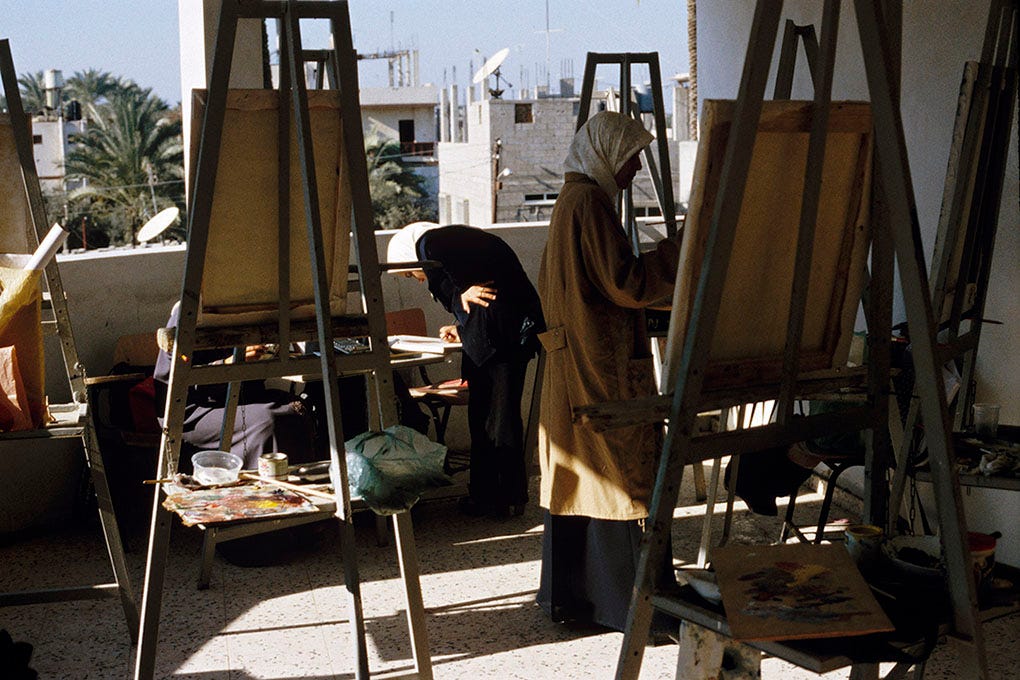
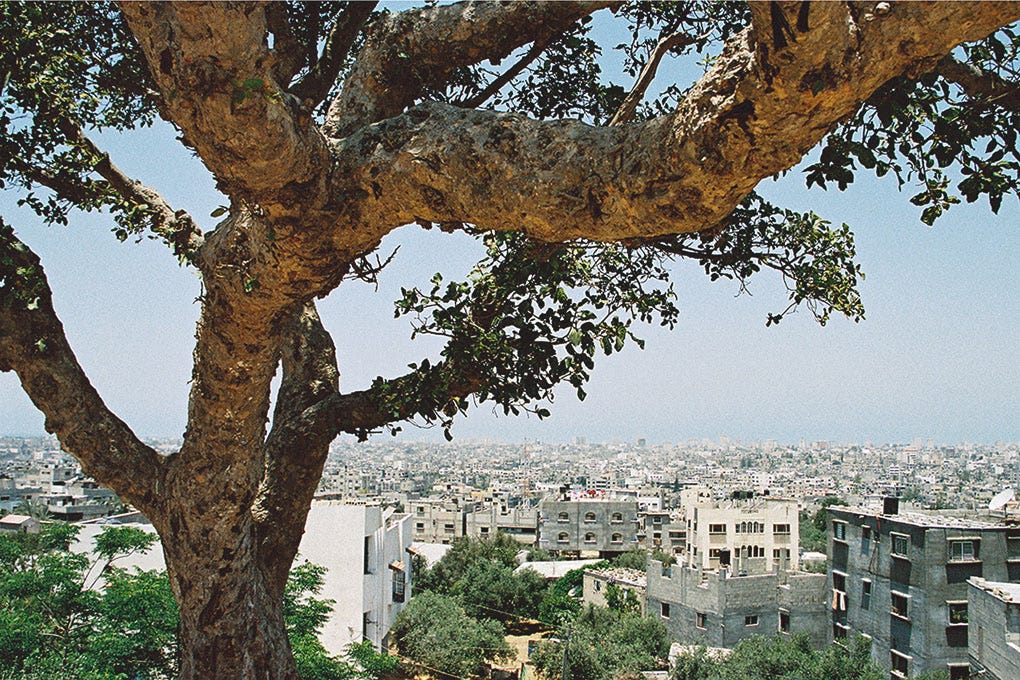
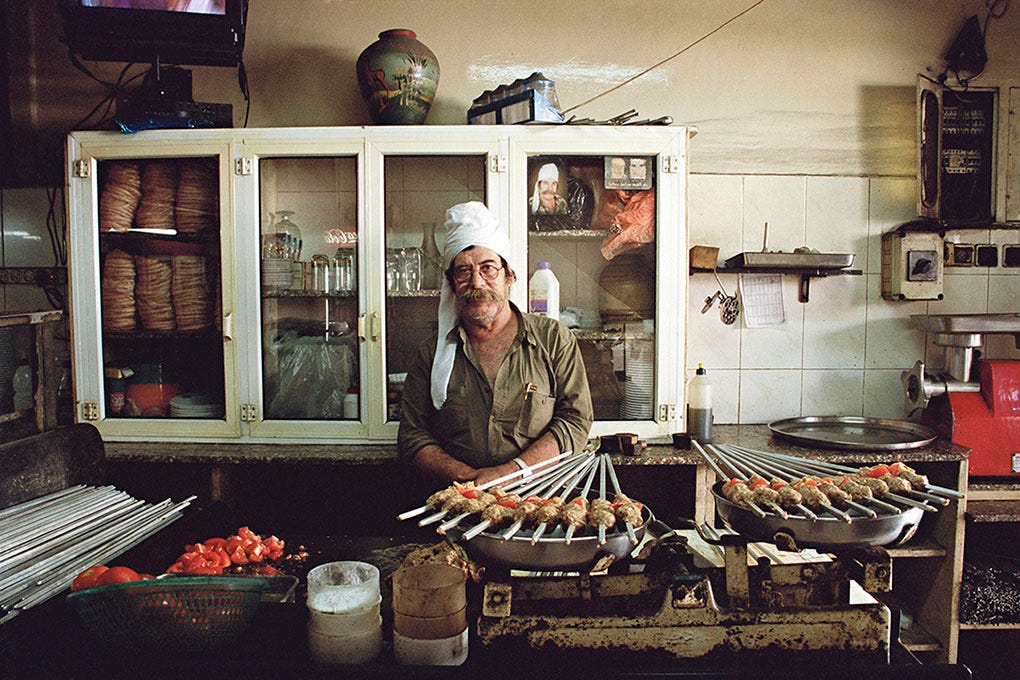
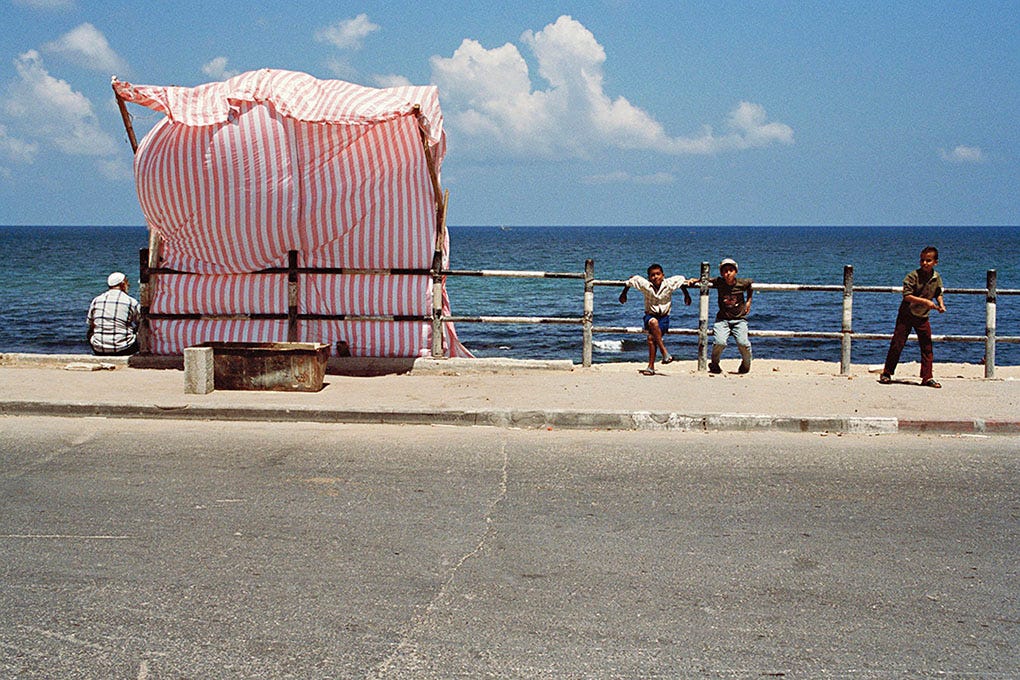
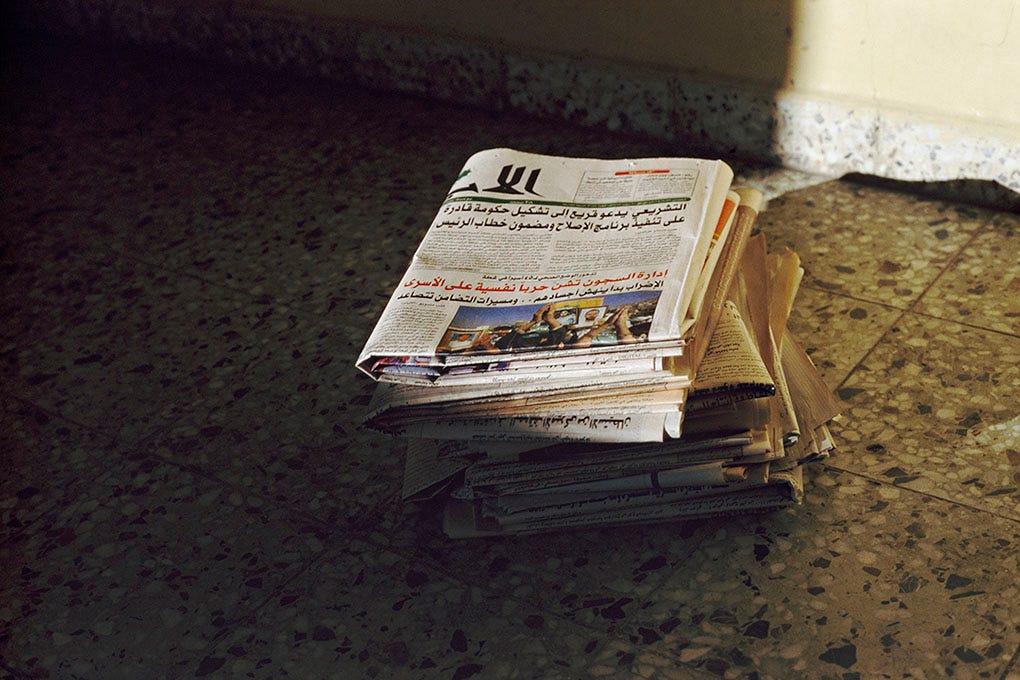
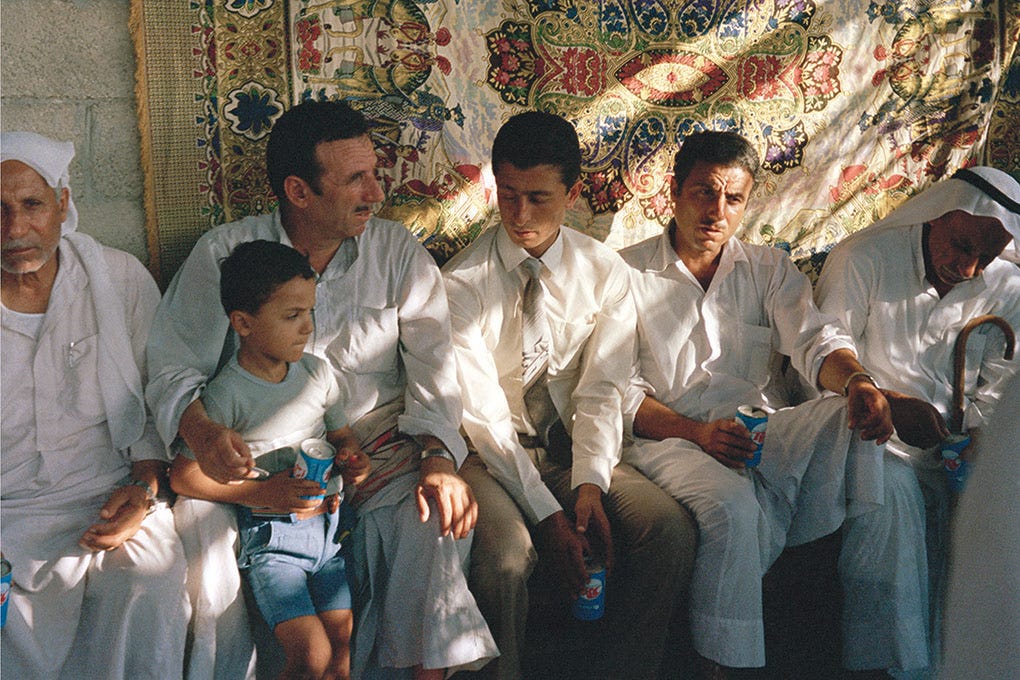
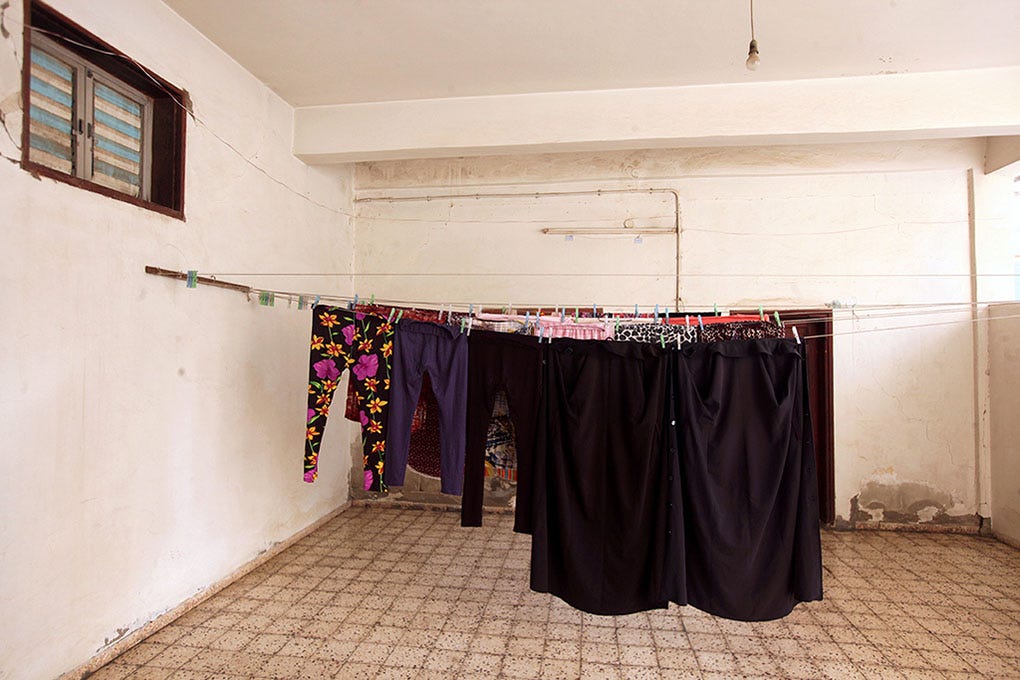

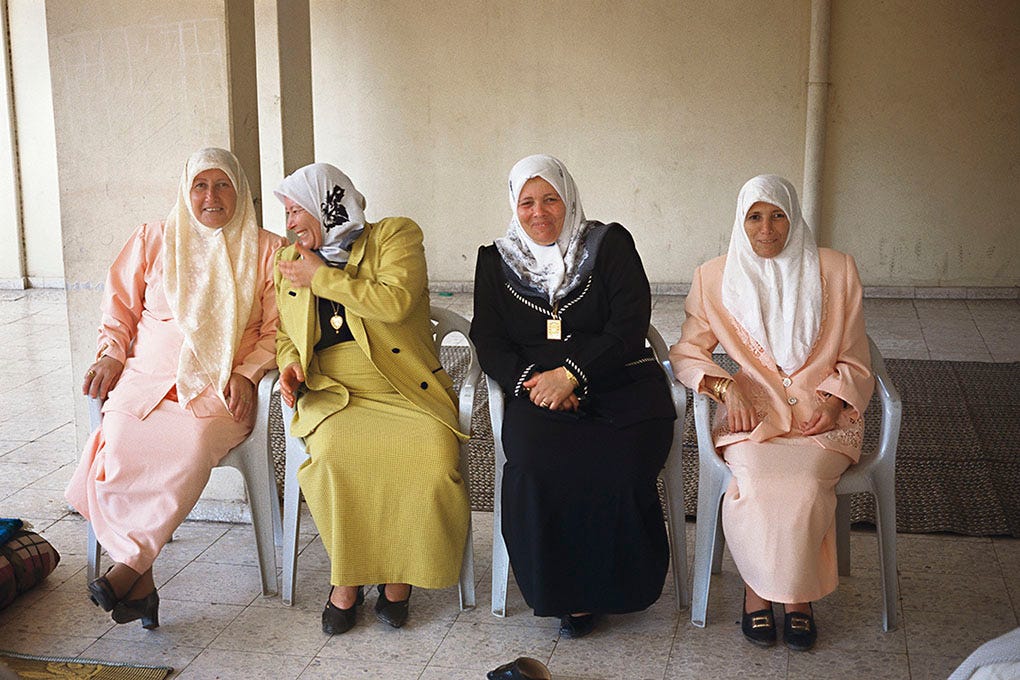
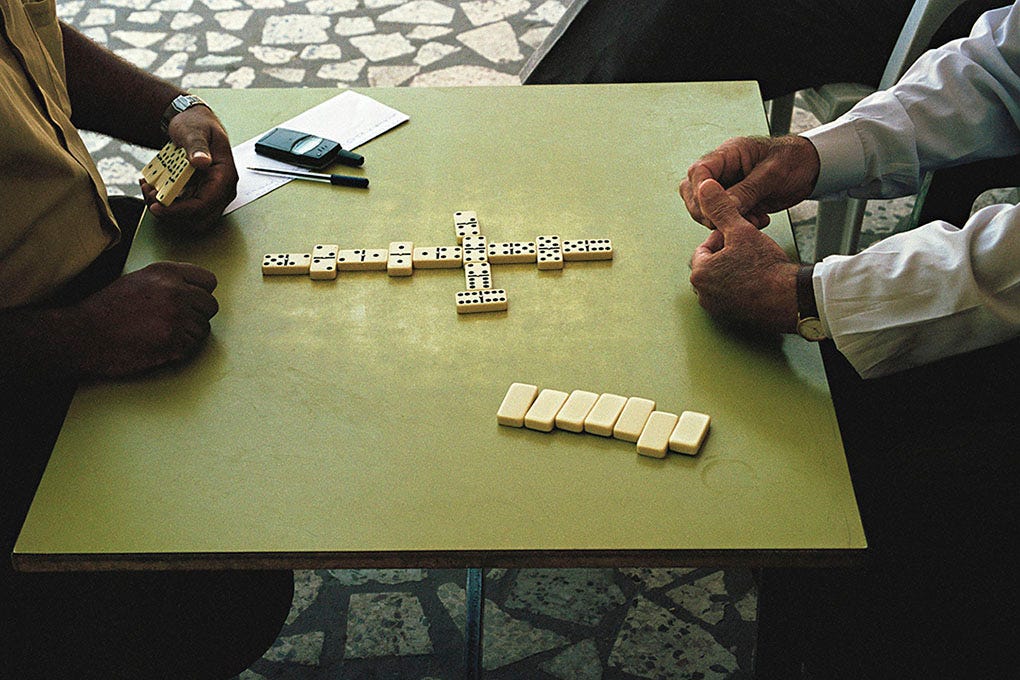




You had me at "a house that used to contain grandparents". Without them inhabiting it, the place becomes almost foreign.
❤️❤️❤️❤️❤️❤️❤️